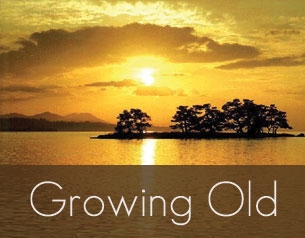Growing Old
An aging population is one the biggest problems facing the developed world. In a society that glamorises youth, age is regarded with fear; associated with weakness and poverty. How can modern society address these problems?
 An aging population is one the biggest problems facing the developed world. In a society that glamorises youth, age is regarded with fear; associated with weakness and poverty. But how do you define aging? Is your age in your body or in your mind? And what will happen when the Baby Boomers retire? Through conversations with elders, professionals and doctors, 'Growing Old' explores how to embrace the challenges of aging.
An aging population is one the biggest problems facing the developed world. In a society that glamorises youth, age is regarded with fear; associated with weakness and poverty. But how do you define aging? Is your age in your body or in your mind? And what will happen when the Baby Boomers retire? Through conversations with elders, professionals and doctors, 'Growing Old' explores how to embrace the challenges of aging.
"Aging is a number. I don't feel any older than when I was 21", states 66-year-old Elaine Ross. Getting old doesn't really bother her. She still enjoys weight lifting and riding her bike. But nursing her husband, Bob, through four years of cancer has forced her to confront one of the hardest thing about aging: losing loved ones. "I pretend that Bob isn't sick and then I get hit with reality that everything isn't really okay", she confides. "I don't want to think about waking up and with him not being here".
Despite his illness and age, Bob is reluctant to leave his job as a sales rep. His colleagues appreciate that; "because of his extensive experience in the industry, he's able to answer all the very technical questions". Bob himself credits his job with helping him fight off cancer. "I think there's a phenomenon that if people need you and your work, you kind of stick around a little longer".
Like Bob, Helen Metros believes her job as a waitress keeps her healthy and active. "I'm just not ready to lie down and die yet", she states. "Anyone who thinks that a person over 70 should not do anything is wrong". At 74, she performs her job with more strength and energy than people half her age. Her boss, Paul, describes her as; "the crowd drawer and good for business".
But many people's experiences of aging are not as positive. "There's a widespread misperception that if we do anything in this society, it's that we provide for our elderly", states Beth, CEO of the charity HEARTH, which helps the homeless elderly. "I don't think people are aware of how little social security pays, or that old people are sleeping on the streets".
Thanks to Hollywood and the wealthy elite, there's a growing tendency to see getting old as a lifestyle choice, akin with obesity. We hear talk of aging as a preventable disease, treated with the latest miracle cream. But the very celebrities held up as the acceptable, glamorised face of aging are the ones who look like the young. We're losing our perspective on what aging really is.
Beth believes that our reluctance to confront death and aging has led to the elderly being neglected. "We have a whole variety of ways of denying death that didn't exist a couple of generations ago", she states. "We expect medicine to save everybody so we idealise youth and postpone aging in any way that we possibly can". Her biggest concern is that no one is addressing the implications of an aging population. "I don't think anybody wants to even think about it. It's that scary".
For most people, the most terrifying thing about aging is the fear that they could lose their independence, become a burden to their family or develop a mental illness. "People just do not like the idea of losing autonomy", states Dr Mazur. Unsurprisingly, those enjoying their last few decades most are the people who still feel useful and wanted.
FULL SYNOPSIS
